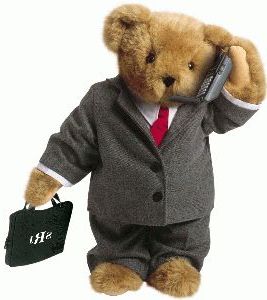Not to alarm you, but don't take choosing a personality test lightly. According to the research in my book Cracking the Personality Code, today there are around 2,500 cognitive and personality tests on the market. So how do you decide which one to use?
Did you know your organization risks lawsuits if it fails to do proper due diligence in test selection? That's because there are a multitude of assessments available out there and the industry is totally unregulated.
To understand how to choose from the plethora of personality tests, it is helpful to understand the origins of these instruments.
Our story begins in a mental hospital in Minnesota during World War II. A test called the Minnesota Multiphasic Personality Inventory is created to diagnose mental illness with yes-or-no responses to a series of questions. In an attempt to put some science into the hiring process, many companies start employing psychologists who in turn used this existing MMPI psychopathological test to screen job applicants. The test includes true-false questions like "I never indulge in unusual sex practices" and "I feel sure there is only one true religion." Of course, this seemed strange and intrusive to most job applicants who took the test over the next six decades.
Meanwhile, a Harvard University instructor and psychologist named Raymond Cattell working in the Adjutant General's office devised psychological tests for the military. After the war he accepts a research professorship at the University of Illinois where they were developing the first electronic computer, the Illiac I, which would make it possible for the first time to do large-scale factor analyses of his personality testing theories.
Cattell used an IBM sorter and the brand-new Illiac computer to perform factor analysis on 4,500 personality-related words. The result was a test to measure intelligence and to assess personality traits known as the Sixteen Personality Factor questionnaire (16PF). First published in 1949, the 16PF profiles individuals using 16 different personality traits. Cattell's research proved that while most people have surface personality traits that can be easily observed, we also have source traits that can be discovered only by the statistical processes of factor analysis. His 16 measures of personality are:
* Warmth-from reserved to attentive
* Reasoning-from concrete thinker to conceptual thinker
* Emotional Stability-from changeable to stable
* Dominance-from cooperative to assertive
* Liveliness-from restrained to spontaneous
* Rule Consciousness - from non-conforming to dutiful
* Social Boldness-from timid to bold
* Sensitivity-from unsentimental to sentimental
* Vigilance-from trusting to suspicious
* Abstractedness-from practical to imaginative
* Privateness-from openness to discreet
* Apprehension-from self-assured to apprehensive
* Openness to Change - from traditional to open to change
* Self Reliance-from affiliative to individualistic
* Perfectionism-from tolerant to perfectionistic
* Tension-from relaxed to tense
In 1963 W.T. Norman verified Cattell's work but felt that only five factors really shape personality: extraversion, independence, self-control, anxiety and tough-mindedness. Dubbed the "Big Five" approach, this has become the basis of many of the modern personality tests on the market today. There have been hundreds and hundreds of studies validating the approach.
Using the "Big Five" terms, here is what a manager is looking for on a spectrum of personality:
* Extraversion-introvert or extravert?
* Independence-accommodation or independence?
* Self-Control-lack of restraint or self-control?
* Anxiety-low anxiety or high anxiety?
* Tough-Mindedness-receptivity or tough-mindedness?
The five decades of research findings, which are much more elaborate then the brief descriptions provided here, has served as the framework for constructing a number of derivative personality inventories. This is a topic that's been researched to death by the field of industrial and organizational psychology. The astounding thing is how many companies undertake such huge investments in hiring and do not pay attention to what we know about using personality assessments to pick out the people who are going to be the best.

